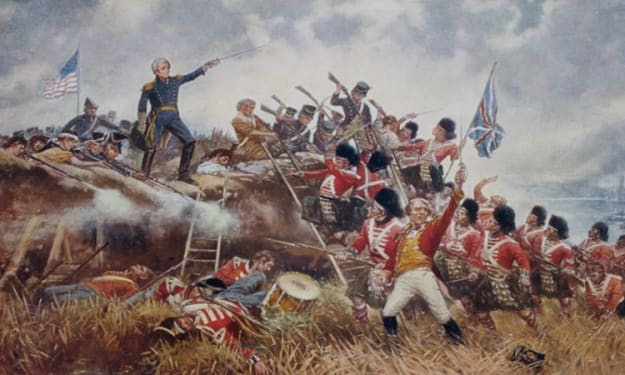The United Empire of America
A War of Continued Westward Expansion

The United States likes to think of itself as an alternative to the empires of old, but in the Philippine-American War, America proved itself to just be a new version of that same imperial structure. Additionally, this unnecessary war of conquest was a clear show of the same imperial attitude that pervaded America’s westward expansion. These expansions, both the Philippine-American War and the conquest of the American West, exhibit imperialism in three main ways. One, through the expansion of land owned by the United States, as a key aspect of imperialism is expanding the territory controlled by the nation. Two, through the subjugation of the native people of the land the US took, the subjugation of conquered people being another key aspect. And three, through the attitudes of Americans before and during the conquest, as while the attitudes were different from traditional European thought in some ways, there was virtually no difference in other ways. This American imperialism in the West created a culture of expansion, one that couldn’t simply fade away once the US hit the Pacific coastline, forcing it to set its eyes on the Philippines.
America did not go into the Philippines without reason, and the reasoning is not exactly obscure either. Not long before the war, American president William McKinley signed a treaty for the annexation of Hawaii, attempting to create a foothold in the region, thus showing that the US had designs on Asia. When the Cuban revolution sparked, the annexation was dropped temporarily, interrupted to protect American interests. When the Maine exploded (February 15, 1898), the US was dragged into a war, but soon found a way to expand from this as well. Theodore Roosevelt, raring for the US to be a world power like those of Europe, sent the US Navy to engage in battle with the Spanish in the Philippines, despite the fact that such a challenge was unnecessary to the overall war. Additionally, the fleet sent under Commodore Dewey was undersupplied, being pushed far away from any American ports, meaning that it was not in any way a good strategy to send this fleet.
Purely by chance, Dewey had managed to find the Spanish fleet at its most vulnerable and destroy it, making the whole journey justified in retrospect. The American fleet also brought with them a Filipino revolutionary leader to further weaken Spanish positions, the formerly exiled Emilio Aguinaldo.
In their discussion upon arrival, Aguinaldo and Dewey both claimed different outcomes. In particular, Aguinaldo claimed that Dewey promised Philippine independence, the one thing Aguinaldo came to fight for. Dewey denied that this was ever stated and lacked the authority to make such a promise in the first place. Nevertheless, the war was won and Manila was taken by the US before the Filipino army could mount their assault. The Filipino people did not need America once the Spanish were gone, but public sentiment for the annexation of the Philippines was on the rise in the US. Many believed that they needed to protect the Philippines from other imperial powers in the region and become a benevolent empire, one that would treat the Filipino people better than the Europeans. However, the revolution had created a strong national identity in Filipinos, and the want for full independence was strong.
Unfortunately, the way that Dewey had tampered with the war, taking Manila and excluding Aguinaldo from the peace deal, meant that the US had a strong claim to the Philippines, just the justification needed for their annexation.
The people of the Philippines, much like the Native Americans the US conquered during the westward expansion, had no interest in being ruled by the United States, no matter how much the Americans thought it would help them. Both native populations were slaughtered in much the same way, through war and deceit. After the signing of the Treaty of Paris (December 10, 1898), debate soon raged in America over what to do with the Philippines, and Congress could not ratify the treaty before some amount of agreement was reached. Congress was split on whether to follow the nation’s principles of freedom, or history of imperialism. Many made the argument in favor of imperialism from case law involving Native Americans, a persuasive suggestion to those who hoped to keep their land which was in all likelihood stolen from Native Americans.
Rudyard Kipling proposed another reason for keeping the Philippines, writing his infamous poem, “The White Man’s Burden,” which suggested that white men needed to colonize other races so as to civilize them. On the other side, some acknowledged the contradiction at play, particularly those who were African-American. Many of them wondered why the US was so focused on “helping” these foreign people when there were plenty of troubles on its own shores, and commented on how the US was killing the darker races at home and abroad.
The outbreak of war between America and the Philippines meant that the annexation was going to be anything but peaceful. Having already tricked the Philippines out of their independence, the Filipinos were not feeling gracious to their “liberators,” and the US was prepared to keep its new territorial gains at the cost of the people they had supposedly gone to the Philippines to save. Because of the imbalance in military force, the war soon devolved into a guerrilla campaign, with Filipino insurgents hiding in the thick jungles they knew so well.
The American people still had a desire to take new land even after manifest destiny was completed. Even passing over Roosevelt’s aggressive moves on the Philippines, there were many others wanting to continue the expansion that the United States had become known for. By the end of the Spanish-American War, there was clamoring in the US for the nation to assume international responsibilities due to a “divine ordination,” not far flung from manifest destiny. With the nation in a congressional election year, McKinley found it essential to follow the public interest, especially with other imperial powers circling the islands. Americans thus thought of themselves as the benevolent empire; the only one that would help the Philippines, as opposed to the exploitative European powers. While there was a group of anti-imperialists fighting hard to grant the islands’ independence, Congress ratified the Treaty of Paris. In the end, the United States wanted to compete on the world stage, and many felt that the only way to do this was to become an imperial power just like the European empires.
The American culture of expansion made the US into what it was supposed to be the alternative to, an imperial power. In sentiment and actions against both the people and land of the Philippines, America was continuing its imperialist expansion that had begun on the western frontier, moving from a manifest destiny to a divine ordination. Time after time the United States has turned its back on the very ideals that it holds highest and the Philippine-American War was no exception. In the end, the Philippine-American War was just another symptom of a long running bout of imperialism in the United States.
Sources and Further Readings
David Silby. A War of Frontier and Empire: The Philippine-American War, 1899-1902.
Gregg Jones.Honor in the Dust: Theodore Roosevelt, War in the Philippines, and the Rise and Fall of America's Imperial Dream.
Brian Linn. The Philippine War, 1899-1902.
About the Creator
History Roundtable
Owner of a history degree and occasional writer of things






Comments
There are no comments for this story
Be the first to respond and start the conversation.